Do you ever find yourself in situations where you wish to express your thoughts, needs, and boundaries more confidently? Well, you’re not alone! Assertiveness is a crucial communication skill that can help you navigate life’s challenges while maintaining self-respect and building healthier relationships. In this blog, we will dive into the world of assertiveness and uncover some practical tips to help you become a confident and assertive communicator.
Assertiveness is like finding the right balance between being too passive and too aggressive. It’s about speaking up for yourself without being overly submissive or dominating. On one side, you have passivity, where individuals hold back from expressing themselves, often sacrificing their needs to avoid conflicts. On the other side, there’s aggression, where individuals intimidate others’ feelings and perspectives. The aim is to find that sweet spot in the middle – where you can effectively and confidently communicate your thoughts and feelings without undermining or disrespecting others.
Here are some strategies to help you master assertiveness:
- Assertiveness begins with self-awareness and self-worth. Embrace the fact that your thoughts and feelings are valid. Remember, you’re entitled to your opinions and boundaries, just like anyone else. Believe in yourself, and others will follow.
- Use “I” statements when expressing yourself to convey your thoughts and feelings without placing blame. For example, instead of saying, “You never listen to me when I’m talking about my day,” you could rephrase it using an “I” statement: “I feel unheard when I share my experiences from the day, and it’s important to me that we can connect through our conversations.”
- Assertiveness isn’t just about talking; it’s also about listening. When others speak, you should give them your full attention. This shows respect and helps you gather information and respond thoughtfully. Also, how you use your body when you talk is really important. Maintain eye contact while speaking, sit or stand with good posture, and keep your arms relaxed. Doing these things shows that you’re confident. When your body shows confidence along with your strong words, it helps you get your message across clearly and confidently.
- Boundaries are your personal guidelines for acceptable behavior. Practice setting and communicating them respectfully. For instance, “I can’t stay late at work tonight, but I’m available to help tomorrow” sets a clear boundary without rejecting the request completely.
- Learning to be assertive takes time, just like a journey. Begin by trying it out in simple situations with little to lose. As you get more comfortable, you can try dealing with more challenging situations. Just like getting better at anything, the more you practice being assertive, the better you’ll become at it.
- Receiving criticism can be tricky, but it’s a part of life. Instead of getting defensive, try saying, “Thanks for the feedback!” and give yourself a pause to think about it. If the criticism is valid, use it as an opportunity to learn and grow.
- Replace negative self-talk with positive affirmations. For example, “I am worthy of expressing myself and being heard.”, “My thoughts and feelings are valuable, and I have every right to share them.” and “I am becoming more assertive with each day, and it feels empowering.”
Remember that you have the right to express your thoughts and feelings confidently.
But what if you experience guilt after establishing boundaries?
Here are some steps to manage and cope with guilt that arises after setting boundaries:
- Guilt Feeling Is Natural: Guilt is a familiar feeling that can appear when you set boundaries, especially with people you’re close to. It’s a bit like feeling uneasy when you try something new. But remember, it doesn’t mean you did anything wrong. It just means you’re making changes, which can initially feel slightly strange.
- Validate Your Feelings: Tell yourself that it’s okay to feel guilty sometimes. It’s like giving yourself permission to say, ‘Hey, my feelings are real, and it’s alright to wonder if I’m taking things too seriously or not. I can accept these feelings without being hard on myself.
- Trust Your Judgment: Believe in your ability to decide when a boundary is right for you. Your boundaries aren’t decided by what others think or how they react. If someone doesn’t take it well, it could actually mean your boundary was important to set in the first place.
- Confirm the importance of your relationship: When establishing boundaries, emphasize the importance of your relationships. Let people know how much the relationship matters to you, and that you intend to nurture a positive connection.
- Focus on Intentions: Remind yourself why you’re setting these boundaries. Your intentions are about self-respect, self-preservation, and protecting your mental and emotional well-being. Recognize that you’re not intentionally setting boundaries to hurt others but to ensure your well-being.
- Challenge Extreme Guilt: For some people, guilt pops up in many situations, no matter what they do. Try to push back against this intense guilt by asking yourself if there’s any situation where you can set a boundary without feeling uneasy. Understand that, at times, this guilt may stick around despite your actions.
- Seek Support: Reach out to close friends, family members, or a therapist and have a chat about your guilt. Sharing what you’re going through with someone you trust can give you helpful advice and emotional comfort.
- Practice Self-Compassion: Be kind to yourself during this process. Understand that setting boundaries is a sign of self-care and personal growth. You are not responsible for how others react to your boundaries; you’re responsible for taking care of yourself.
- Evaluate the Boundaries: From time to time, look at the boundaries you’ve established. Are they still benefiting your well-being, or do they require some tweaking? This helps make sure your boundaries continue to match your evolving needs.
Keep in mind that handling the emotions that come with setting boundaries is a natural part of the journey. Over time, as you consistently practice assertiveness and set boundaries that protect your well-being, the feelings of guilt are likely to diminish. In the meantime, use these strategies to constructively cope with and manage the guilt.











